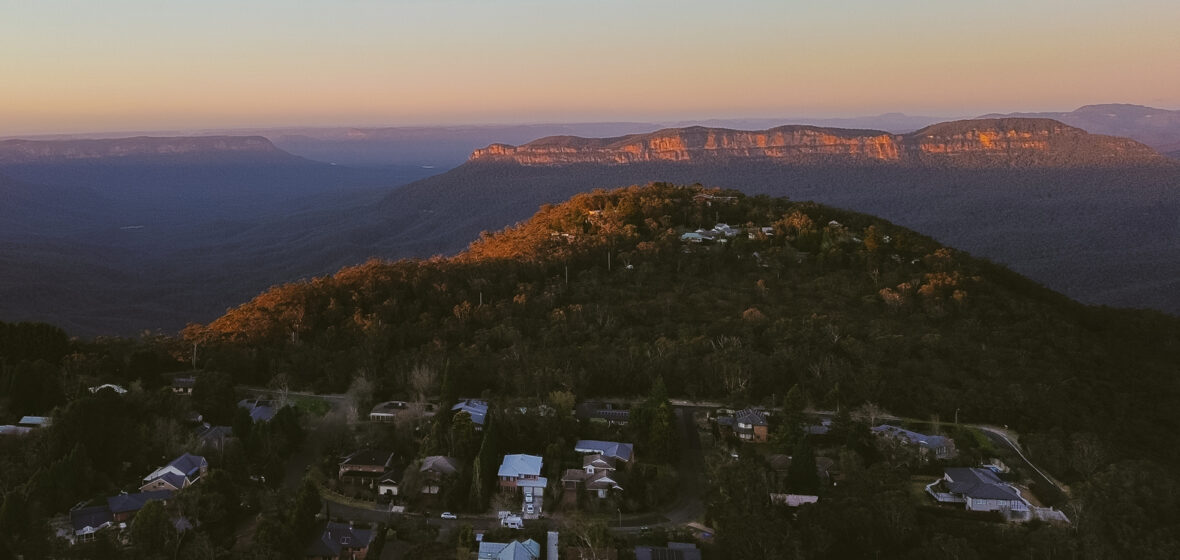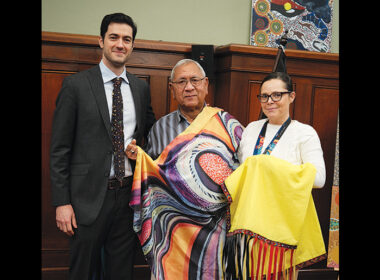The Blue Mountains expansive views and abundance of opportunities for outdoor adventure make it the most visited National Park in NSW, with around six million visitors a year. It’s much loved by locals, and its close-knit legal community wouldn’t have it any other way. But there’s a darker side, with floods, bushfires and the effects of the pandemic putting residents under severe stress in the past five years. Free and low-cost legal help is harder to access for disadvantaged people in the community.
Behind a high hedge on a street that slopes down to tourist icons Echo Point and the Three Sisters, there’s a blue-grey weatherboard cottage with a sign reading ‘Solicitors + Attorneys’ nestled in the greenery.
Two doors up there’s another sign on top of a brick wall: ‘Solicitor & Barrister’. Next door is a cool coffee roaster and café, and across the street is the local RSL club. We’re in Katoomba, the largest town in the Blue Mountains, only a 90-minute drive from the steel and glass towers of Sydney, but the atmosphere is a world away. What makes it so different?
The City of Blue Mountains is one of only two cities in the world situated entirely in a UNESCO World Heritage area. The other is Banff, in Canada’s Rocky Mountains. Geologically, the Blue Mountains are a plateau rather than a mountain range. They don’t appear blue. The area gets its name from the blue haze created by oil seeping from eucalypts on sunny days. It’s also not what comes to mind when you think of a city. Rather, it’s a string of 26 towns and villages scattered across more than 100 km of spectacular, mostly wilderness land. It’s on Dharug and Gundungurra Country, with an Indigenous Land Use Agreement with the Gundungurra people covering lands and waters of the southern half of the Blue Mountains Local Government Area.
Steep sandstone cliffs, gorges, waterfalls and temperate eucalypt forest dominate the landscape – and the hearts of its 78,446 residents. The median age is 45, two-and-a-half years above the state average and eight years above Sydney’s. Health care and social assistance is the largest employment sector, with professional, scientific and technical services, including law, in distant seventh position. At the 2021 Census, the Aboriginal and Torres Strait Islander population was a little over 2000.
The Blue Mountains has drawn attention for some less-than-serene happenings in the last couple of years: the murder of nine-year old Charlise Mutten by her mother’s partner at a lavish estate and wedding venue in Mount Wilson, for which he has been sentenced to life without parole; remains of a missing woman found 23 years after she disappeared; and false accusations of kidnapping and sexually abusing young boys made against a family who ran a circus school, with all charges eventually dropped after they had spent more than 200 days behind bars.
The truth is that most legal issues in the Blue Mountains seldom make it into the media. Crime rates are relatively low; well below state average. The Bureau of Crime Statistics and Research (BOCSAR) reports that assault, particularly domestic violence, is the highest recorded crime. Intimidation, stalking and harassment, and breaches of bail conditions are also common. Fraud is the most common non-violent crime. But most legal practices don’t deal with crime, focusing on wills and estates, property transactions, litigation and family law. The typical legal practice occupies a converted house on a major street close to a town or village centre.
What’s a morning in the Katoomba Local Court like?
The newly renovated and modernised Katoomba Court House, an elegant sandstone heritage building from 1897, is the only court in the local government area. Occasionally it operates as a District Court, but mostly it’s a Local Court.
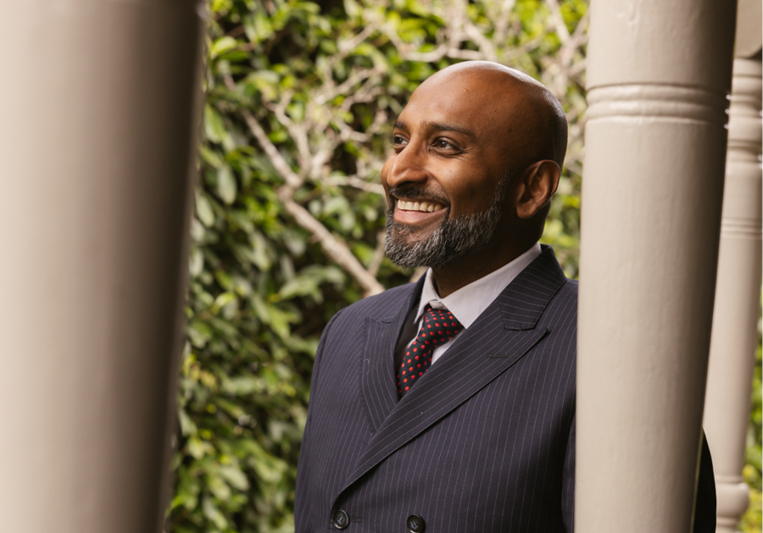
Curious to see what dominated court proceedings, the Journal attended a listing day in August. Most matters are domestic and family violence related. The atmosphere in the small wood-panelled courtroom is collegiate, and while most attendees look a little anxious, there are no signs of extreme distress. The registry staff are friendly and helpful, and there is a duty solicitor, Lachlan McAuley, who was featured in the July 2023 issue of The Law Society Journal, at hand. Law in the Blue Mountains is a small world.
Magistrate Leanne Robinson dismisses a case concerning a traffic fine, telling the would-be offender, “you did your best in a difficult situation”. There’s a bail variation allowing a busker to continue to ply their trade in the tourist village of Leura, noting that being able to work in the affluent town is important for a busker’s income.
Suddenly, deep breathing emanates from a large blank screen to the left of the Magistrate’s table. A woman is calming herself before her hearing. A sentencing matter due to be heard by video from the Wellington Correctional Centre has to run with only sound, due to a “tech glitch.” The accused has been in custody for six weeks and she “hates it.” Her lawyer argues that she wants to address her trauma and get on with her life, and to be a good parent. She’ll participate in an outreach program and address her drug and alcohol issues. Another person appears from a rehabilitation facility via video, He’s been there for four months and is determined to stay for a full year so that he can “start again.” For somebody unused to the criminal justice system, the degree of cooperation from the accused and the kindness and empathy shown by the judicial officers is unexpected.
The work of a criminal solicitor in a low-crime area
Senior Associate criminal solicitor, Craig McGilvray appeared in the Katoomba court for a couple of his clients on that Monday morning, describing it as a “very normal day.” “I came up this morning. I left home at five o’clock,” says Craig, who lives in the beachside suburb of Bronte in Sydney. He runs the criminal practice at Hal Ginges & Co from a crowded office in a converted house in Katoomba.
Craig says the most common types of offences are drink driving and “people who get caught with random drug tests. There’s obviously always domestic violence matters and things of that nature. We get serious matters, which are more District Court matters. Katoomba is also a District Court, sporadically, not throughout the year. Then you get trials, severity appeals, the more serious matters.”
Despite all the driving necessary to practise in a huge area covering Katoomba, Lithgow and Bathurst, this is where he wants to be. “I’ve been with Hal for over 10 years. I had a short stint in the city for a few months and found that it wasn’t for me. Last year, I worked for a very city firm for less than five months, and I found the approach there was far more profit driven, whereas here, it’s a far more holistic approach to the client’s needs,” he says. “It’s not all about funds and trusts or money, or profit. It’s a more pastoral approach to caring for people, which is a better feeling.”
Escaping the city
Another local solicitor who moved to the Blue Mountains and loves the lifestyle and the practice of law is Raj Srikanthan, managing director of Katoomba law firm Benetatos White. Unlike Craig McGilvray, he made the move to the area to avoid a long drive. The Canadian-born lawyer was commuting between Bathurst and Sydney.
“I set up my own practice and became outsourced general counsel for a few tech companies in Sydney. I would travel back and forth, and I started considering that I might need to either move to Sydney or move closer to Sydney”, Raj recalls.
Antony Benetatos and Andrew White were ready to hand over the reins of their small firm. Raj recalls, “Coincidentally, I was looking at potentially moving to Katoomba, a 50-minute drive to Sydney if you needed to go in a rush, and during that period I came across this practice and met Anthony and Andrew, who were gracious enough to let me come in and just talk to them about the business. Over time, they allowed me to become the managing director. And I took over the practice that way.”
Raj had misgivings about moving to a small regional practice, naturally. “Any new person in a new area is going to be concerned with ‘is the goodwill going to transition to you?’ I didn’t know anything about Katoomba when I first moved here, but over time you meet people. Everyone’s just amazing.”
So how did he manage the adjustment from his stimulating corporate job in Sydney, where he worked with many tech startups? Raj says he finds the work he’s doing now more interesting. “A lot of city firms operate very fast. It’s like fast food. Whereas in regional areas, you get to know the clients, you have the opportunity to develop a relationship over time, rather than just do paperwork and communicate by email, and so it’s a very friendly sort of vibe.”
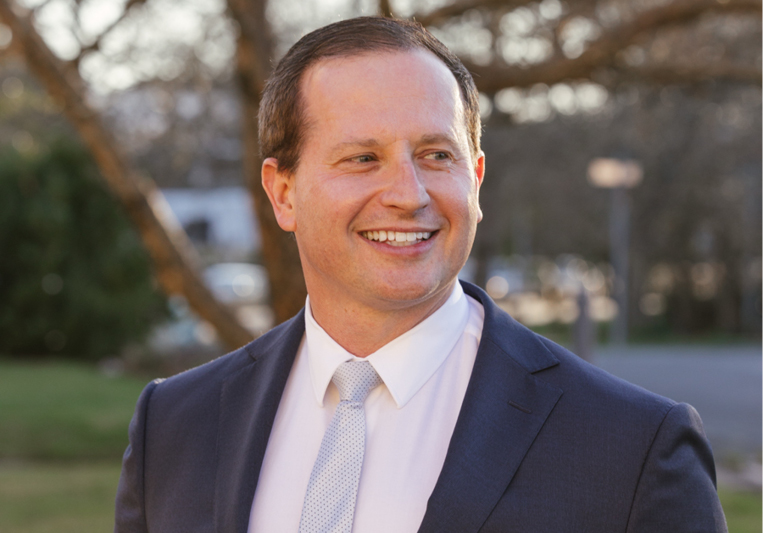
Inside the close-knit legal community
A court users’ forum, held twice a year, typifies the camaraderie in the Blue Mountains legal community. Craig McGilvray explains that the registry, the magistrate and a group of solicitors get together to discuss matters that are approaching or any issues there might be with the running of the court. “The last one we had recently was all about domestic violence, and whether or not the voices of the victim are able to be heard through the police. Sometimes people who have an AVO or a charge matter against them have a different view to what the prosecutor might be thinking is appropriate for that matter. So now there’s an approach that we think we’re developing whereby the court or her Honour will ask the complainant what their views are, rather than just the prosecutor saying, ‘this is what they want’, which is quite an insightful approach.”
“Sometimes the police have a different view to what the person in need of protection may want. We’re encouraging that to be in investigated at Katoomba court, rather than just having the system play itself out. AVOs are not really designed to engineer a consenting relationship between adults. And if two adults want to be able to see each other, they should be able to do that without the police restricting that behaviour. And that’s why I think the court at Katoomba’s trying to have a way where the person involved is able to say, ‘this is what I want’, not just what the police think I should have.”
To Craig, “the most hostile law is family law. Because people become obsessed by arguments, hostility, and then obviously relationships with children. I would say it’s the most emotionally draining component of law. With criminal law there’s always an outcome at the end, but I think emotions continue far longer with family law. When you take it to court, you’re never going to get the outcome you want.”
Domestic violence is rife
Long-time Blue Mountains resident Anni Gethin saw a gap in the services offered to women in domestic violence related disputes. Those caught between being eligible for Legal Aid and being able to pay high fees to private law firms were finding it much harder to access justice within the family law system. She started Brigid Justice, which began trading as a law firm in July 2021, after she qualified as a lawyer in 2020. Brigid Justice caters to women all over Australia due to its remote working structure, with most consultations and hearings conducted online.
“All our lawyers work from home,” Anni explains. “Apart from WA and the Northern Territory, we’ve got clients in every state and we’ve got solicitors in three states. So I can live and practise from here. I actually very seldom have to go into court and so everything can be done pretty much from home. If there’s a trial, that’s the only time. I would personally probably have to go to court maybe eight times a year, but that might be for a four or five-day trial,” she says. “I have a 12-year-old, and she’s happy in the Blue Mountains. She definitely did not want to go to Sydney, so it is good that I can practise here.”
Law is a second career for Anni, who was previously a social scientist specialising in health and the author of a book on babies’ sleep. The Journal asked what motivated her to study law in her forties.
“I was a victim of domestic violence, but that wasn’t my motivation. The motivation was going through the family law system and also the criminal system, and seeing how terribly difficult they are for victims. They’re very confusing, lawyers on the other side can be aggressive. I was, oh my gosh, it cannot be this bad. We’re educated, middle class people. It was just horrible. And I thought, there needs to be a legal practice for women victims, a specialist practice. And I went back to law school.”
Anni explains how they manage a remote-working firm. “We have a good client management system and we’re calling each other all the time. And the courts use Teams for appearances. Occasionally a client will want to see us in person, but generally they don’t, and that keeps our costs down as well. It’s also not having a fancy office, or even any kind of office.”
The social enterprise is transparent about its pricing, with fees on a sliding scale depending on income and assets displayed on its website for all to see.
“We’ve got a fund. There is a real issue for women who’ve suffered abuse and are trying to get their property settlement, and they have no money to make the ex-husband give them what they’re due. So they need to have their legal fees funded to the point at which they can extract some money from the ex. It’s like a litigation fund, but when the woman gets her property settlement, she pays it back. It doesn’t ever run out.”
Brigid Justice has been able to help around 15 women thanks to the fund, contributed to by the Blue Mountains Rotary and Blue Mountains Quakers.
Does the Blue Mountains, with its peaceful villages and closely knit community, have a particular problem with domestic violence?
“The rate of DV is the same here as anywhere else. It’s across all sectors and all communities. The problem is predominantly men are abusing their partners and children, and there’s nothing different in that respect,” says Anni.
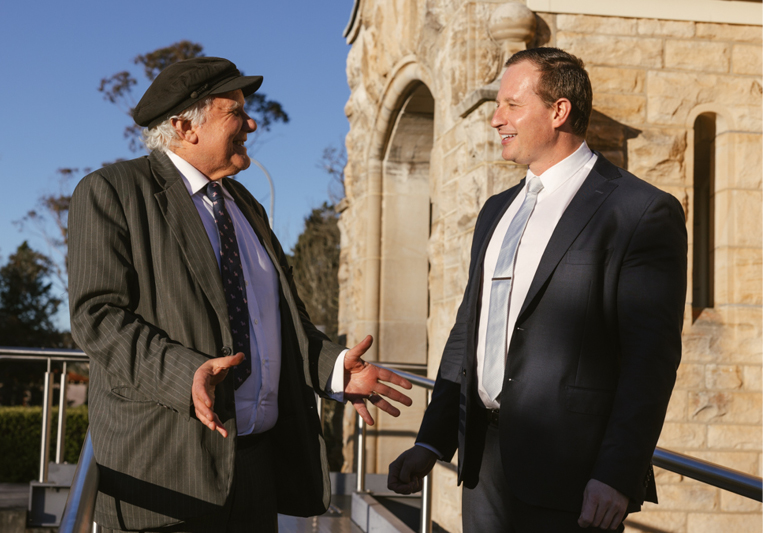
Meet a long-serving solicitor in the Blue Mountains
Hal Ginges has been running his practice in the area since 1978. “I moved to the Blue Mountains from Sydney when I had very young children. I liked the area and decided to see whether I could survive through practising law up here, instead of travelling down to Parramatta, which I’d been doing beforehand. And I found that I could. And so the practice has been around in different places in the mountains since 1978.
“What drew me to being a lawyer was the fact that it gives one an opportunity to help those who can’t help themselves. And so the practice has always had a strong emphasis on doing work for people who are eligible for Legal Aid and those who are not eligible but can’t afford to pay. So there’s a fair bit of pro bono work we do and, I guess that’s what gives me satisfaction out of being a lawyer.”
As well as being a lawyer, Hal has studied philosophy, focusing on Rudolf Steiner, founder of the Steiner education movement, as well as German. Hal was instrumental in setting up the first Steiner school in the Blue Mountains, in Hazelbrook, in 1983. In the 2016 federal election, he stood as a candidate for the Animal Justice Party in the seat of Macquarie, taking in the Blue Mountains and the Hawkesbury, garnering 2,554 votes.
“My wife and I are very committed animal activists, We’re vegans, not for health reasons, but for ethical reasons. But as it happens what we’ve found is that both of us feel healthier through being vegan,” says Hal. He’s no longer active in the party, but continues his animal activism, a popular cause in the Blue Mountains. He has also served on the management committee of the Blue Mountains Refugee Support Group, as its chair from 2013 to 2018. He’s now its honorary solicitor. “The reason that I was drawn into that was that it was an opportunity to use law in ways that I would get some satisfaction from, because it’s again a way to help people who can’t help themselves. So we continue to do quite a bit of pro bono work for refugees. I’m presently trying to help refugees from Tibet.”
“There’s also the occasional refugee who finds himself in an awful situation where he might commit a crime. I had one of those last year, which was a pretty serious offence,” says Hal. “A fellow who had been in Villawood Detention Centre for a very long time. And when a lot of refugees were released with that strange High Court decision last year, he wasn’t released.”
“He became so frustrated that he took out his anger on another inmate at Villawood and has been charged with a serious offence. And because of that, having been taken from Villawood and placed in prison, he’s developed a real psychosis. And so he’s now in the in the hospital of Long Bay Prison.”
After 45 years in practice in the area, Hal has no thoughts of giving up yet. “I suppose I should think that way. I haven’t done so in a serious way,” he says. “I enjoy a lot of what I do. Not all of it. A lot of it’s very satisfying, it’s often for people who can’t help themselves. But it doesn’t mean that this is a total charity. We get paid by Legal Aid and sometimes we’re paid well, for some of the work we do. I don’t want to pretend that we’re something we’re not. But nevertheless, that’s the part that’s satisfying for me.”
What keeps the community up at night?
What issues most affect the Blue Mountains community? Asking around, the answers include threats to the area from fires and floods due to climate change, young people coming up from western Sydney and committing crimes such as gatecrashing parties and assaulting kids, the number of empty shops in the main streets of Katoomba and Springwood, and the increase in the costs of rent, housing and everyday items.
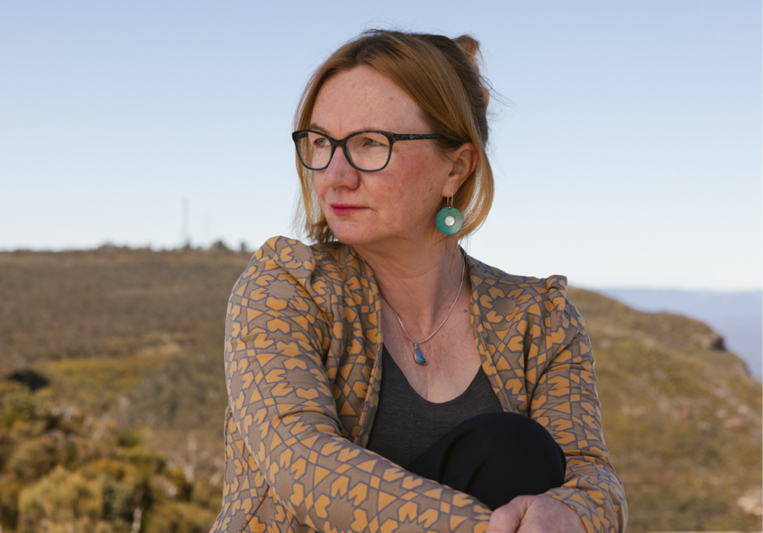
The proportion of younger people in the community is lower than the state average, with some 9,500 young people aged 10 to 19 years, 3,400 aged 20 to 24 years and 6,519 aged 20 to 29 years, according to the 2021 Census. Since COVID-19 and with the rising cost of living, there is an evident increase in the number of young families in the region, moving from Sydney for more affordable housing.
Younger people report boredom and isolation as some of the downsides to living in the area. Trains run only every hour, and the service ends just after midnight. Buses are scarce out of school hours. Getting around is difficult with no car, and ridesharing services barely exist. Luckily, there are several services for teenagers, with MYST, or Mountains Youth Services Team, being the most active. The organisation has two premises, one in Katoomba and one in Springwood, a larger village in the lower part of the Blue Mountains. Besides hosting drop-ins and an array of fun activities, the MYST early intervention program addresses mental health, wellbeing, school attendance and academic performance issues. MYST CEO Jodie Rollason explains that while the centres don’t currently offer any legal services, in January this year the organisation was accredited to take on young people for their community service work. “We have been working with the Department of Communities and Justice to assist any young people who have been court ordered to do community service, doing valuable work in our youth centres,” Rollason says.
A stylish renovation is almost complete at the Katoomba MYST centre, with an inviting hang-out area, a full kitchen, music-making space and even a small gym room ready to welcome anybody aged 12 to 24. The organisation offers mental health counselling, work development orders to pay off fines and financial counselling, among other services. In this way it helps to ensure that young people avoid a pattern of offending.
The Blue Mountains Regional Law Society provides financial support to MYST. The rising cost of living has seen more need for the service’s breakfast club, run at all state schools in the area. Its support has provided students with toasties, cereal and fruit, and MYST reports that since the breakfast program began there has been a decrease in truancy and behaviour issues, and an improvement in academic focus. Several recently developed programs for LGBTQAI+ young people have also been successful, helping participants to connect with one another and to deal with stigma. MYST has also launched a program to address multicultural understanding and reduce racism, important to an area with a low level of racial and cultural diversity.
The Blue Mountains Law Society also offers scholarships to year 12 students in legal studies who have been accepted into a tertiary law degree, showing all students that a career in the law is possible for them. But there are still very few young lawyers practising in the area. A scheme is being proposed by the Law Council of Australia, which is running a campaign to persuade the Commonwealth to use Higher Education Loan Program (HELP) debt reduction and indexation relief to attract more lawyers to these areas.
While the hundred or so kilometres between the Blue Mountains and Sydney hardly make it rural, or even regional, the area seems to be included in the scope of the proposal.
“Under this scheme, qualified lawyers who live and work in eligible regional, rural and remote areas will be able to apply for a reduction of their outstanding HELP debt after working in that area for a requisite period, which we suggest should be at least two years,” the 2023 Law Council president Luke Murphy said. “Law degrees are currently among the most expensive tertiary courses in Australia. A law student today is likely to accumulate a HELP debt of at least $70,000 prior to their admission to practice. This would make an offer of debt forgiveness extremely attractive and we believe an effective lever to encourage early and mid-career lawyers to consider a regional, rural and remote career.”
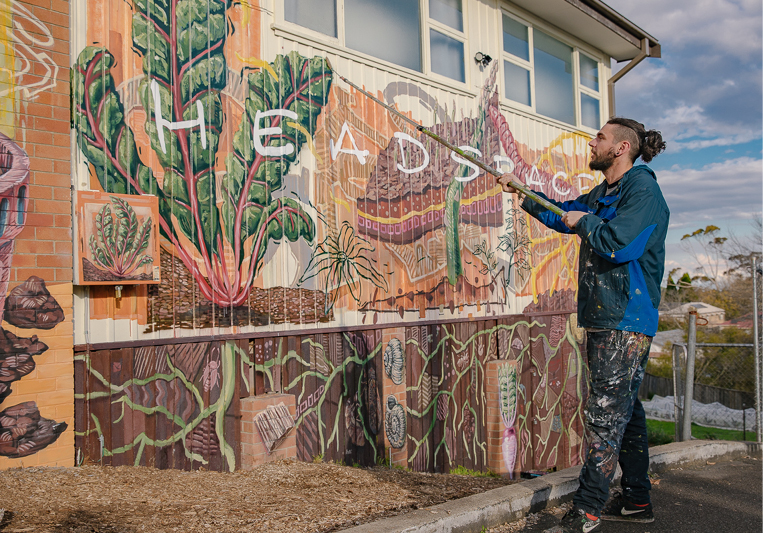
The darker side of the Blue Mountains
Community legal services are available but operate precariously. The Central Tablelands and Blue Mountains Community Legal Centre (CTBMCLC) is funded through the National Legal Assistance Partnership Agreement. Its CEO, Arlia Fleming, says the annual funding is only $700,000 for the area covering from the Blue Mountains to Orange, more than 150 km away. “To provide a service with that kind of money makes it incredibly difficult to determine who we assist and how much we assist. We might be able to give people advice, but quite often we’re saying to people we can’t assist you further with your matter because we don’t have the resources, and that’s really devastating for a lot of people.”
“A lot of people are left without representation, and they might have a bit of an idea about what they can do, but often they don’t do it because of their circumstances. They’re not able to advocate for themselves, They can’t follow through with matters and potentially their situation will escalate,” says Arlia.
All CTBMCLC services are targeted at those who are financially disadvantaged and can’t otherwise afford a lawyer. “We have a focus at our centre on family and domestic violence, so we work very closely with other domestic violence services in the region. We receive lots of referrals from them for people that are needing assistance with AVOs and family law, and parenting matters,” Arlia says. “We prioritise our services to people who are financially disadvantaged, but also to the priority groups in the National Legal Assistance Partnership Agreement; people with disability, Aboriginal and Torres Strait Islander people, those experiencing mental health issues.”
For Aboriginal and Torres Strait Islander people, the service is committed to providing a service within 48 hours of contact. Arlia explains that this is due to both the history of their dispossession and their mistrust of services. She says, “It’s very important that we respond quickly, and so sometimes that’s not necessarily an appointment with a lawyer, but our admin staff providing information and referral as well. At least touching base with people and letting them know that we will do our best in whatever way possible.”
Is there a shortage of legal practitioners in the area?
The shortage of lawyers in regional areas often makes access to justice for residents more difficult. Luke Murphy says that a lack of private legal practitioners also limits the availability of Legal Aid and pro bono assistance in these locations.
For the CTBMCLC, this has reached crisis point. Its CEO, Arlia Fleming, has just returned from a visit to Canberra to launch a new campaign to save Australia’s frontline legal services. Arlia is also chairperson of Community Legal Centres Australia. “It’s a huge issue, and it’s only getting harder because of course we can’t offer anyone job security with less than 12 months of funding,” she says. “We have to start thinking a bit outside the box about how we can attract young people. We’re certainly seeing a lot less student volunteers since COVID. That hasn’t really picked back up again for us. So whether people are just not being attracted to the legal assistance sector, I’m not sure. Perhaps people are favouring private practice for more job security.”
The CTBMCLC has two volunteers in its Katoomba office, as well as two in Orange. “They largely focus on those other areas of law that we don’t deal with in-house: employment law matters, other civil matters, wills and estates questions, credit and debt,” Arlia explains.
Raj Srikanthan has found recruiting new practitioners to the Katoomba practice tricky, a problem common to many regional areas. According to Luke Murphy, “about a third of the Australian population lives outside of our capital cities, but less than 10 per cent of solicitors practise in a regional, rural and remote location.”
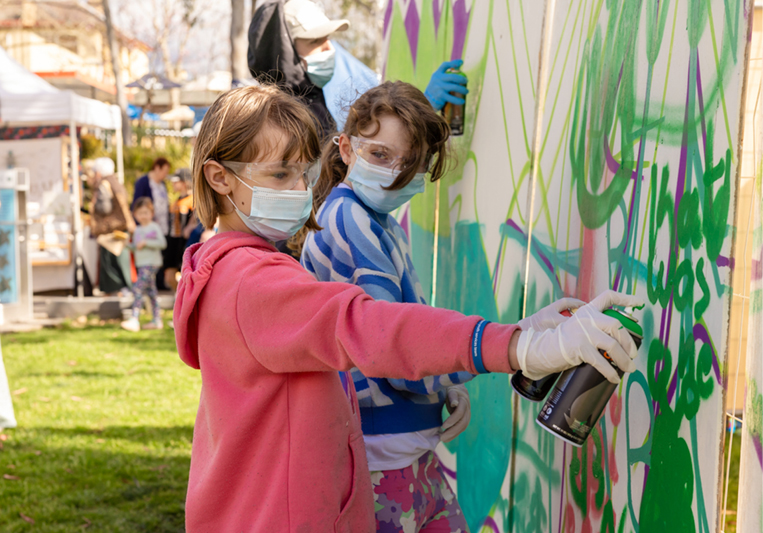
The effect of the new Western Sydney airport
For some, visiting the Blue Mountains from other parts of the country – or even the world – will be easier once the Western Sydney International (Nancy-Bird Walton) Airport is open, scheduled to happen in 2026. It’s situated less than a half-hour drive from Glenbrook, at the base of the mountains. But most locals are not happy about the noise and disruption the 24-hour domestic, international and freight flights will cause.
As you cross the Nepean River and officially leave Sydney, the road narrows, the speed limit drops and you begin to wind through the villages strung along the Great Western Highway. Soon you glimpse homemade signs reading “No Curfew, no sleep, no thanks.”
A growing issue in the Blue Mountains community is the proposed 24-hour flight paths. The Commonwealth Government is responsible for developing the flight paths, and residents are not happy with them. Although there have been changes in response to community feedback, the community will continue to push for night-time curfews and legislated noise limits.
Mayor Mark Greenhill says, “There are only two cities in the world fully enclosed in a World Heritage national park: Banff in Canada and Blue Mountains in Australia. Banff is protected from aircraft noise of this nature. Blue Mountains should be as well”. Greenhill told a Senate enquiry, “The proposed flight paths do not take into account the unique character of the Blue Mountains. The Environmental Impact Statement was rushed through without appropriate consultation with UNESCO. Our World Heritage status is in part dependent on demonstrating that impacts from development would not threaten the values that justified the nomination. The intensification of overflights is at odds with these values.”
The Blue Mountains Conservation Society points out that there are both international obligations due to UNESCO listing as a World Heritage site and responsibilities under the Wilderness Act 1987 (NSW) to protect declared wilderness areas. The Senate’s Rural and Regional Affairs and Transport Reference Committee is due to report on the issue in October.
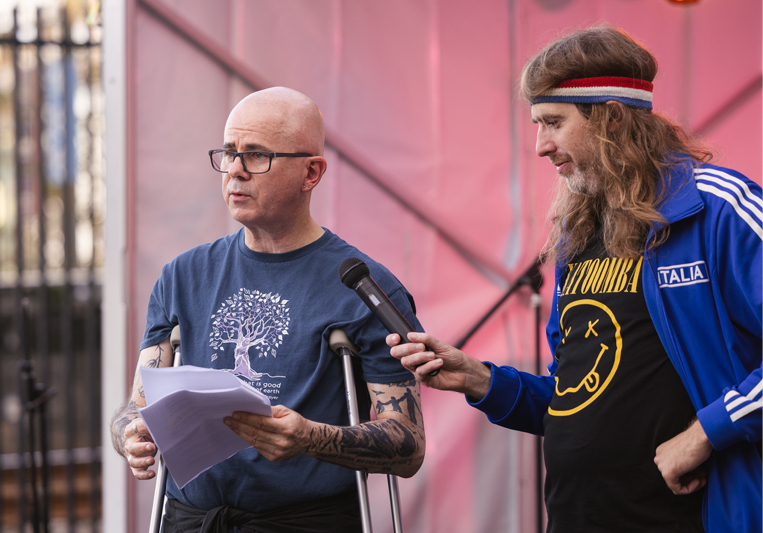
The Blue Mountains’ World Heritage status can make some legal matters more complicated. Raj Srikanthan has experienced this first-hand. “People don’t realise that when you’re buying property, it’s beneficial for you to utilise the services of a law firm that’s actually in that area. Because ultimately, they might have intimate knowledge of that region that would benefit you. They might be able to understand about certain fire zones and zoning requirements that you wouldn’t have known about. And the buyer would have said, oh, that’s too much work. I’m not going to buy that property, I don’t know what that means.” A local solicitor is more able to explain local issues, Raj explains.
In the not-for-profit sector, harmony between organisations is evident. The CTBCLC has strong connections to community agencies in the area, as well as with statewide services. CEO Arlia Fleming says, “We work closely with government agencies like Centrelink and My Aged Care. We always try to make sure that we are doing our best, not just say to people we can’t assist you, but to make sure we try to provide an appropriate referral where that’s possible.”
Neighbourhood centres such as Belong Blue Mountains and Springwood Neighbourhood Centre offer referrals to legal services. A relatively new service, Homes for Older Women, connects women aged 55 and over to homeowners prepared to offer accommodation at affordable rents, recognising that, “The new face of homelessness in Australia is that of an older woman”. It seems that whoever you are, the area has something for you.
Raj Srikanthan realises practising somewhere regional like the Blue Mountains may not be for everyone. “When you’re young, you want the glitz and glamour of being in the city. You might want to go out or have drinks and dinner with friends or colleagues, you want to experiment and explore and do new things. And as you get a family, you’re like, ‘I just want to limit the time I travel. I just want to be able to be home by five-fifteen on a Friday so we can order pizza and put on a movie and hang out with the kids.’ That becomes more of a priority as you get older.”

